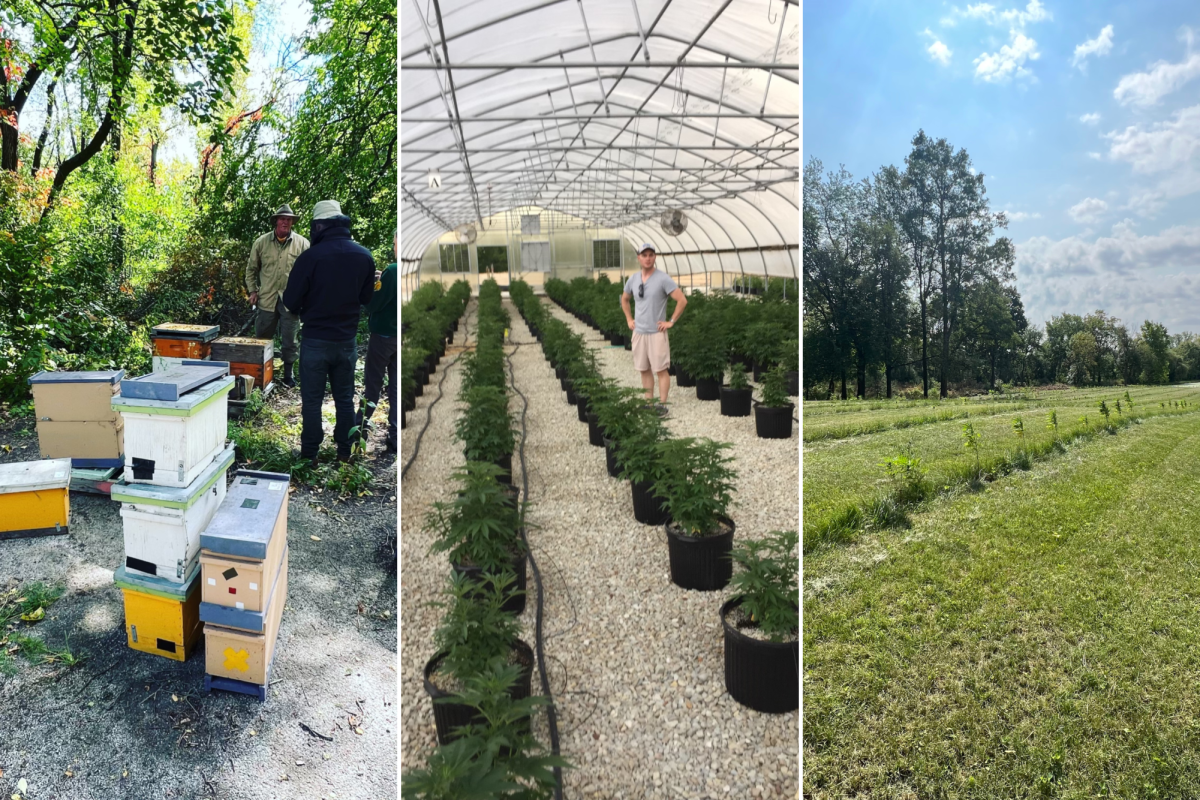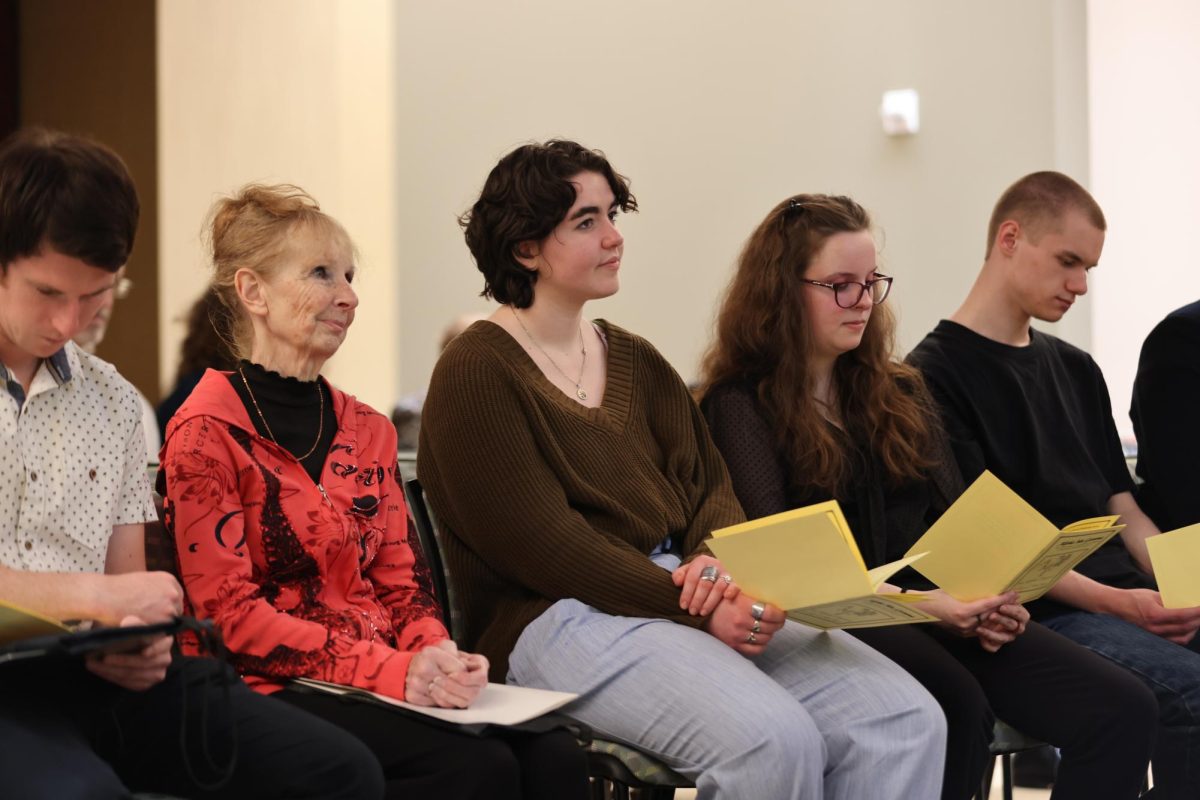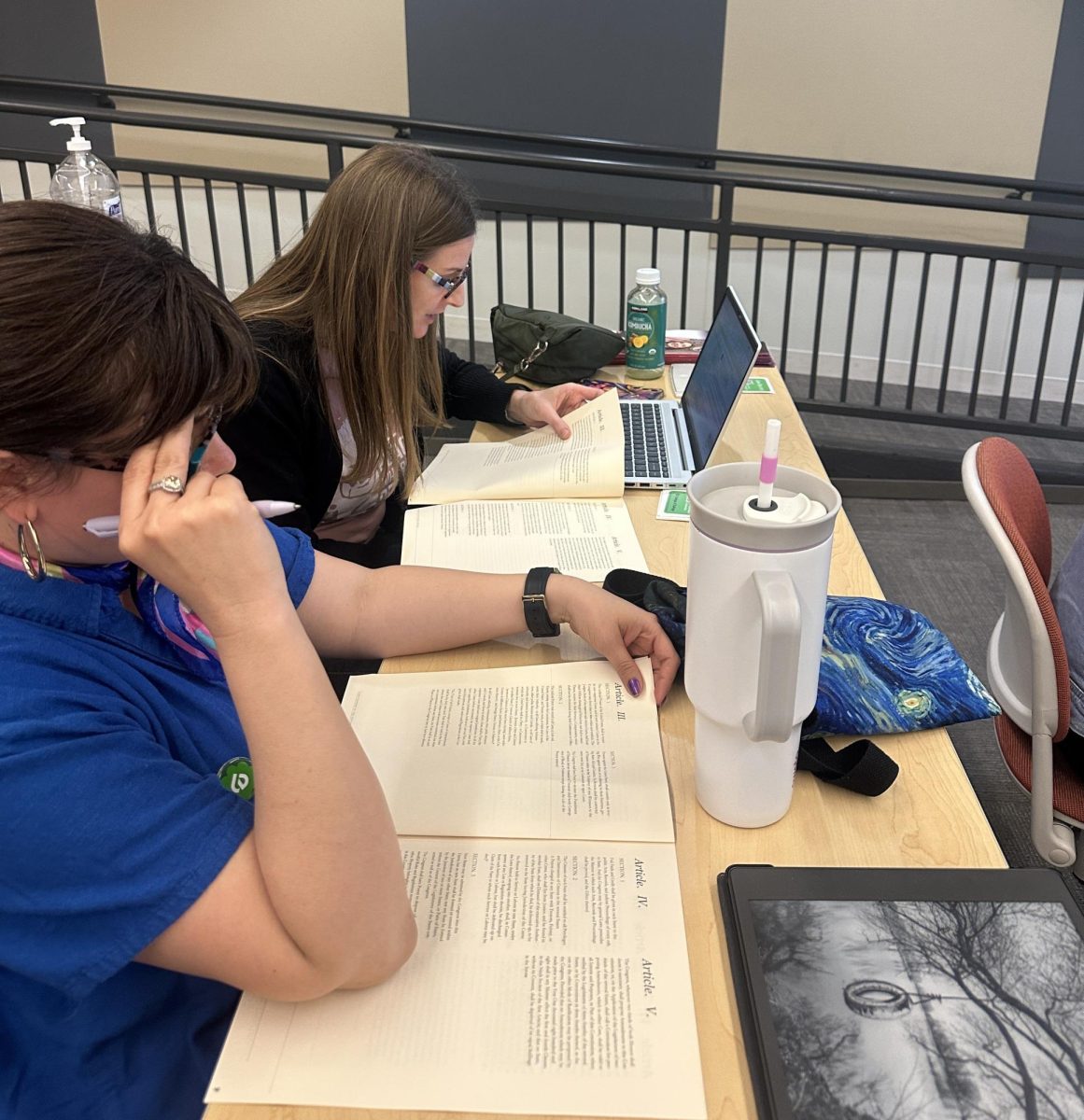Discussions about marijuana being illegal at the federal level, and on what kind of education taxpayers were funding at COD, unfolded at the Aug. 24 board of trustees meeting. Board members questioned whether approving coursework surrounding a controlled substance like marijuana would be the right choice.
It was the Cannabis and Industrial Hemp Cultivation Certificate that brought conversation, which is designed to provide an education for those interested in the cannabis industry as students explore the fundamentals of its production and biology. The program was approved in a 4-3 vote, with Trustees Andrew Manno, Heidi Holan and Annette Corrigan voting against.
Students spoke in support of the certification during public comment, and COD faculty who’ve pushed for the certification’s development publicly addressed the board over their concerns.
“The students were asking for this,” Brian Clement said, a horticulture program coordinator at COD. “We have quite a few students that are in the program currently that have done internships and stuff out in the industry. This certificate is helping them get into the industry and get some of those entry-level jobs.”
Because cannabis is illegal at the federal level, Manno opened the discussion by questioning if approving the certificate could complicate the college in receiving federal student aid. In response, Clement and others in the administration talked about a grant being put together that would subsidize students participating in the program. This grant could also cover the college if any federal funding was lost when approving the certification. In COD’s fiscal year 2022 budget-in-brief, the college reported 16% of its budgeted revenue derived from federal funding.
COD’s Provost Mark Curtis-Chavez also pointed out if the academic institution and the cannabis program are provided accreditation, “their funding is expected to be safe,” according to an article written by the National Association of Student Financial Aid Administrators.
Following Manno, Holan said she spoke to over 100 individuals during the past couple months to understand their opinions on the contents of this program. According to Holan, the majority of these individuals didn’t want their tax dollars to be used to train people to grow marijuana. Two-thirds of COD’s annual budget comes from taxpayer revenue.
Shannon Toler, a COD professor for business, management and marketing, defended the program from this criticism by emphasizing the importance of the formal education that comes behind it. Courses on dispensary operations, cannabis law and industry policy will be available starting spring 2024 and are expected to be required elements of completing the certificate.
“The business courses are specifically designed to include both ethical and legal discussions and regulatory issues around this particular industry,” Toler said. “That’s obviously a huge part of being in the dispensary business.”
On this topic, Holan said coursework centering around these subjects was asked to be added as electives by the “criminal justice department.”
Fall 2023 marks the first semester where these courses on cannabis and hemp production are being taught on campus. Professor Brandon Smith-Nataraj has been teaching both classes, with 30 students currently enrolled across both sections.
“We really want to have a competitive edge,” Smith-Nataraj said. “The greater Chicago area is a great place to be for not only industrial cannabis but also specifically with the medical and recreational sides of it too.”
Dispensing establishments in DuPage County earned a revenue of $89.8 million between July 2020 and June 2021, with medical cannabis dispensaries generating sales of $55.2 million, according to the Illinois Cannabis Information organization.
“The whole point of this is the exposure; having the opportunity to be able to explore this career field,” Smith-Nataraj continued. “Maybe you start off as a bud trimmer and you work your way up because you have the certification, and the leadership at your dispensary is going to say, ‘You know, nobody else has this.’”
Illinois has accounted for more than $950 million in total cannabis sales for the first six months of 2023, according to a report from Headset, a company who puts together data on the cannabis market. This makes Illinois the third-highest state in total cannabis sales.
Students progressing through the certification coursework will receive hands-on experience as the horticulture department collaborates with Kerry Farms, a cannabis and hemp farm led by Dr. Joseph Sheehan in Winfield, Ill.
“When I was looking to do cannabis as a doctor in 2019, you lose all your credibility that you’ve built up because people think that you’re a quack,” Sheehan said.
From Sheehan’s research and work in the cannabis and hemp industry, the conversations are starting to turn less political, but the negative stigma surrounding marijuana persists.
“It’s a huge future aspect of agriculture. The possibilities are endless. Unfortunately, it’s like going to the moon,” Sheehan continued. “We used to grow a lot of hemp and cannabis, and people have done that for hundreds and hundreds of years, and then they stopped, and now we have to go back, and we have to learn everything again.”
Gaining work experience at a cultivation center is “impossible” according to Sheehan, making the market for getting a full-time job in the industry highly competitive. For students to directly participate in the daily operation of Kerry Farms would give them a serious advantage when applying for positions in the field.
“It’s going to be huge,” Sheehan said. “If you show up to a dispensary or show up to a cultivation center and you have this certification, you’re probably going to go straight to the top of the list of people that they’re looking to hire.”
Kerry Farms will also be a federally licensed growing farm, allowing their operation to not only grow cannabis and hemp for research purposes but also participate and contribute in clinical trials for the National Institute of Health. This federal license, provided by the Drug Enforcement Administration, would make Kerry Farms only the eighth location in the United States to possess it.
“I think I’m going to bring 100 jobs, and I’m going to hire all of them directly from the College of DuPage horticulture department,” Sheehan said. “Anyone that thinks the College of DuPage is a normal community college is completely wrong. There’s a lot of bright people in that school.”
The Courier requested comment from board members who were opposed to the certification. Holan and Corrigan did not respond. Manno referred requests for comment to board chair Christine Fenne. Fenne did not respond.







